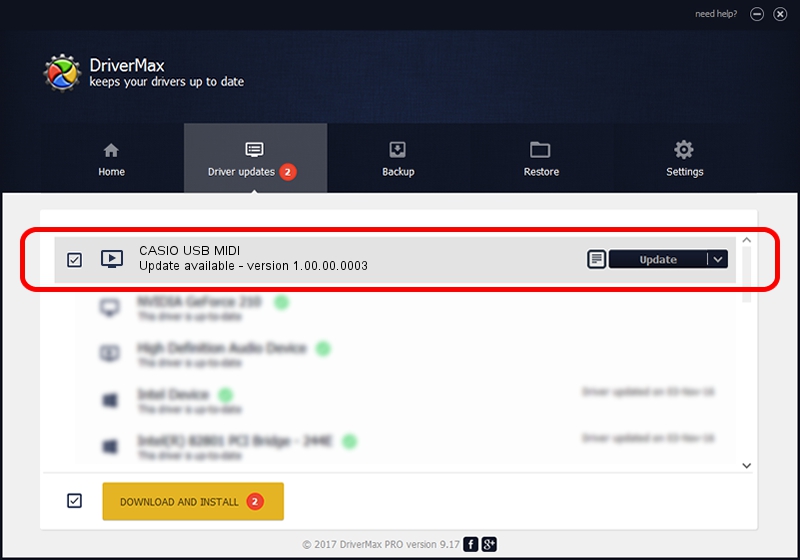

'No device drivers were found' when installing Windows 10 using a USB I have just finished a PC build and when booting windows it tells me 'No device drivers were found'. Many users have said simply to switch USB ports to 2.0 ports but my PC case is a newer model and only has USB 3.0 ports. Intel Android device USB driver 1.10.0 on 32-bit and 64-bit PCs. This download is licensed as freeware for the Windows (32-bit and 64-bit) operating system on a laptop or desktop PC from drivers without restrictions. Intel Android device USB driver 1.10.0 is available to all software users as a free download for Windows.
Casio Keyboard Usb Driver Download
Audio Stream Input/Output (ASIO) is a computer sound card driver protocol for digital audio specified by Steinberg, providing a low-latency and high fidelity interface between a software application and a computer's sound card. Whereas Microsoft’s DirectSound is commonly used as an intermediary signal path for non-professional users, ASIO allows musicians and sound engineers to access external hardware directly.
Casio USB Devices Driver Download For Windows 10
ASIO bypasses the normal audio path from a user application through layers of intermediary Windows operating system software so that an application connects directly to the sound card hardware. Each layer that is bypassed means a reduction in latency (the delay between an application sending audio information and it being reproduced by the sound card, or input signals from the sound card being available to the application). In this way ASIO offers a relatively simple way of accessing multiple audio inputs and outputs independently. Its main strength lies in its method of bypassing the inherently high latency and poor-quality mixing and sample rate conversion of Windows NT 5.x audio mixing kernels (KMixer)[citation needed], allowing direct, high speed communication with audio hardware. Unlike KMixer, an unmixed ASIO output is 'bit identical' or 'bit perfect'; that is, the bits sent to or received from the audio interface are identical to those of the original source, thus potentially providing higher audio fidelity. In addition, ASIO supports 24-bit samples, unlike Windows NT 5.x MME and DirectSound which truncate 24-bit samples to the upper 16 bits, whereas Windows NT 6.x mixer provides 32-bit floating point output. Higher bit-depth samples offer the potential for a higher signal-to-noise ratio.
